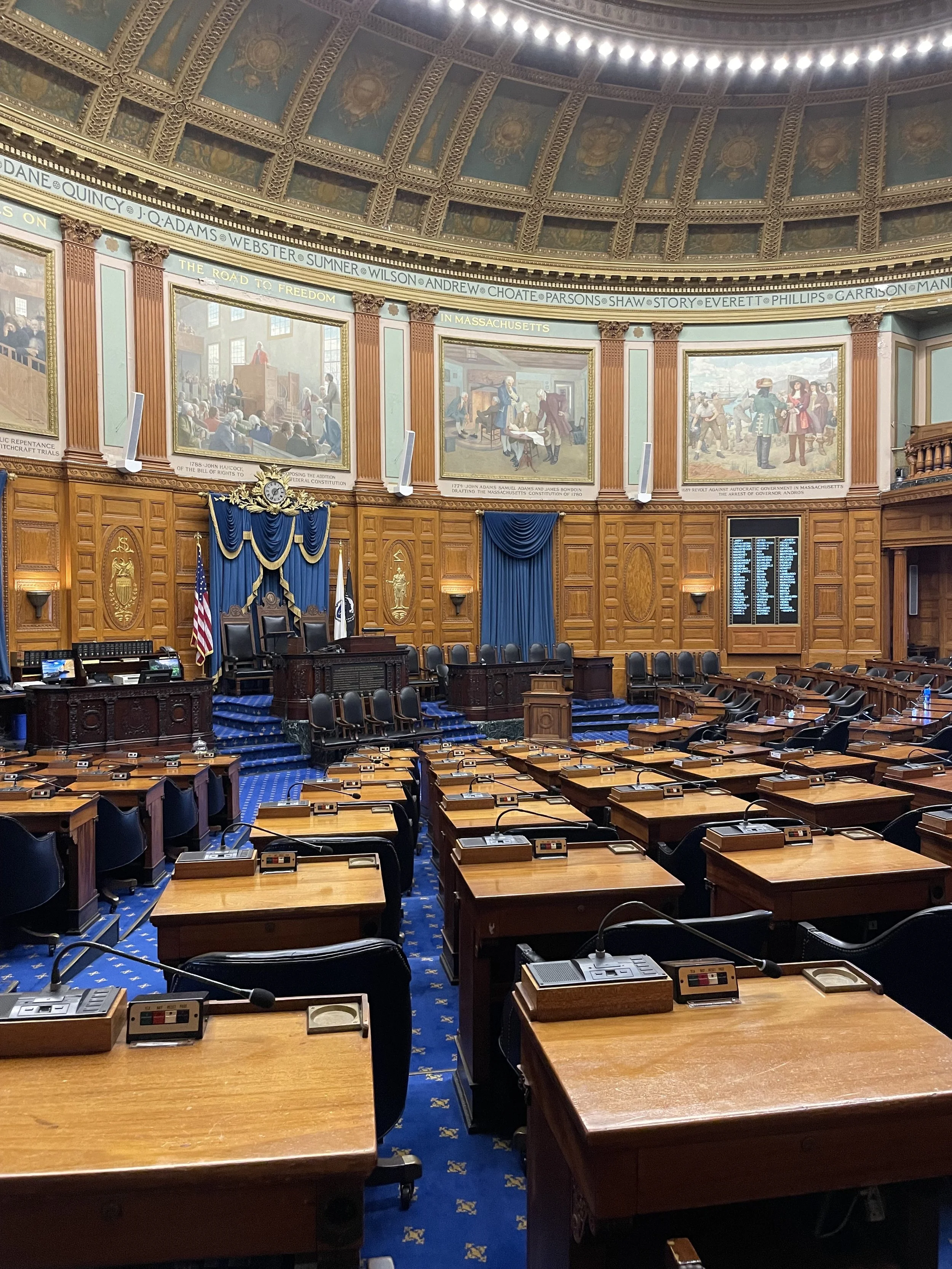
TAKE ACTION NOW!
TAKE ACTION NOW!
Let’s pass bills to ban toxic PFAS and clean up contamination!
It’s time to act—other states have restricted PFAS in consumer products and stopped spreading toxic sludge on farms. Now it’s Massachusetts’ turn.
Act to Protect Massachusetts Public Health from PFAS (S1504/H2450) Senator Julian Cyr (D-Provincetown) and Representative Kate Hogan (D-Stow)
Bans PFAS in some consumer products: carpets and rugs, children's products, cookware, fabric sprays, food packaging, personal care products, and textiles (including clothing & furniture).
Restricts PFAS in firefighting foam
Authorizes the Massachusetts Department of Public Health to ban PFAS in additional consumer products
Creates a fund to test and treat drinking water for PFAS—covering both public water systems and private wells.
Restricts industrial releases of PFAS
Act to Protect Our Soil and Farms from PFAS Contamination (S56/H109) Senator Jo Comerford (D-Northampton) and Representative James Arena-DeRosa (D-Holliston)
No more toxic sludge on farms—bans the use of wastewater sludge as fertilizer.
Funding to help farmers whose land has already been contaminated.
It’s time to act. Let’s get these bills passed this session!
Step One
Send your state legislators an email!
Enter your address in the Action Network form, and you will be automatically linked to your state legislators’ email addresses.
Step Two
Send a card to your state legislators!
Find Your Legislator: Look up your state legislator’s name, room number, and contact details here: FindMyLegislator
Download a Postcard: Choose one (or both!) of our PFAS postcards—one for the Public Health bill, one for the Farm bill. Download them here: Public Health Postcard | Farm Bill Postcard
Add Your Message: Write a short note in your own words.
Mail It: Address your card to your legislator at:
Massachusetts State House
24 Beacon Street
Boston, MA 02133
(Include your legislator’s name and room number.)
Why it matters: Emails are good—but postcards stand out. Taking the extra step of sending a personal card shows your legislator that this issue truly matters to you.
Step Three
Get others involved!
Invite Friends: Share the Action Network email with your Massachusetts friends and ask them to contact their legislators.
Post on Social Media: Use one of our sample messages (or write your own), download the matching graphic, and tag your legislators.
Tagging Tip: Find your legislator’s social media page, copy the text after the last “/” in the URL, and add “@” in front.
The more voices we raise, the stronger our call to action on PFAS!
Step Four
Get people together to take action!
Host an Event
Organize a virtual or in-person info session. Email us at lspark@cleanwater.org—we can provide speakers to explain PFAS and the legislation.
Sponsor a showing of “The Poison in Us All” (48 min) and follow with a postcard-writing action. This short film is an incredible primer for understanding PFAS contamination and the need for action.
Meet with Legislators
Call to find their office hours or request a meeting (in-person or virtual).
Invite them to a community group meeting—they’re often glad to connect with constituents.
What to Say
Give your legislators your name and address.
Tell your story: How has PFAS affected you?
Do you have PFAS in your drinking water?
Have you been reading PFAS news and are wondering how to keep your family safe?
Are you a firefighter or other worker who has been exposed to high levels of PFAS?
Have you used products for years that you now know have PFAS?
Do you or someone you know have an illness that you suspect might be connected to PFAS?
Explain the problem: PFAS are toxic, persistent, and widespread in our water, products, and bodies. Even tiny amounts increase the risks of cancer and other serious health problems.
Why it matters: Our water and products should be safe. Other states have already acted—Massachusetts must too.
The solution: Ban PFAS in products, clean up existing contamination, and stop polluting farms.
Your ask: Co-sponsor and vote YES on H2450/S1504 (Public Health) and H109/S56 (Soil & Farms).
Urgency: Neighboring states have already passed bans—Massachusetts must not fall behind.
Bonus!
Organize locally!
Your community deserves clean water, accountability, and protection from future harm. Sometimes that means getting organized.
If you’d like help bringing your neighbors together, identifying the outcomes that matter most, and building a winning strategy to address your local community’s PFAS challenges, reach out to Slingshot for on-the-ground organizing support.
You can also connect with Community Action Works, which offers training and resources to support communities impacted by PFAS.
If you want to organize your local group to work on state PFAS bills, connect with our coalition! Contact Laura Spark at lspark@cleanwater.org.